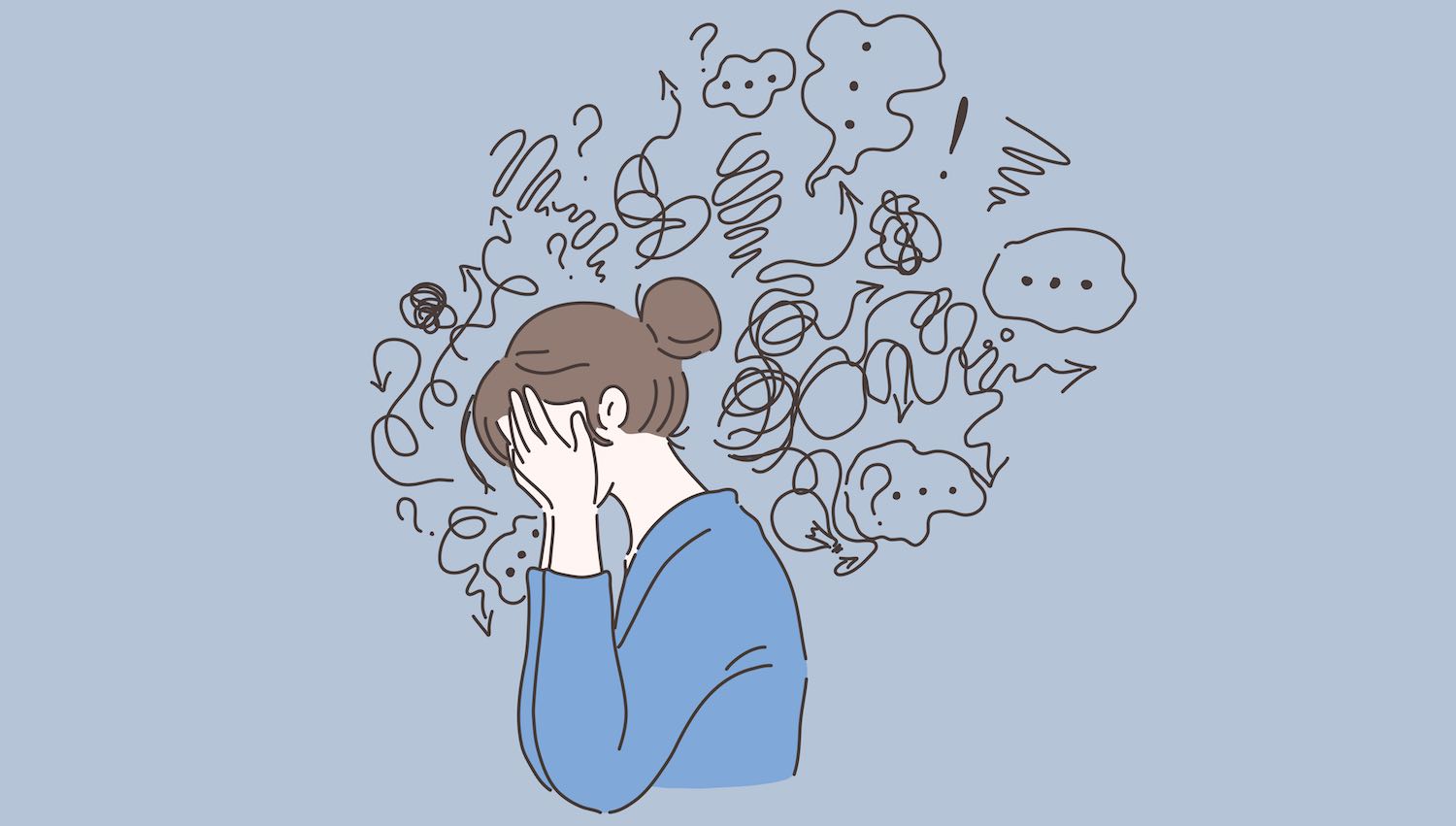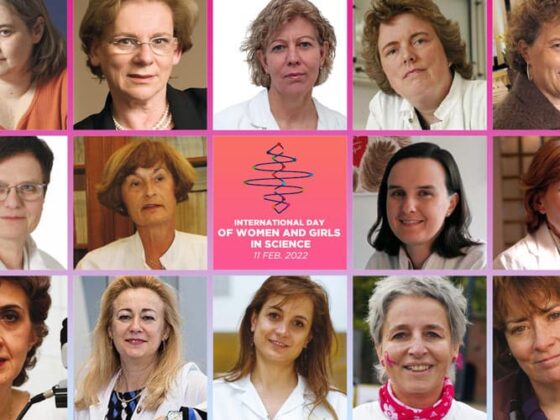Fiona Henderson was part way through her psychology degree when she received her breast cancer diagnosis. Right after treatments finished, she returned to her studies – initially without a problem. “Three or four months later, I really struggled. I was reading an article, but when I came to writing notes, I had already forgotten the information. It literally was like the information was moving through my head and straight out.” Gradually, it dawned on Henderson that her cancer and the treatment she received might be the cause – that she might have ‘chemobrain’, as the cognitive changes associated with chemotherapy are often dubbed.
Her struggles gave Henderson the impetus to look closer at how cancer treatment affects patients. For her dissertation, she conducted a study on how chemotherapy-related cognitive deficits impact on people who have gone through breast cancer. For this, she interviewed 12 women who had completed treatment for breast cancer at least one year previously. “The one thing that came up so often was: ‘I just feel stupid’,” says Henderson. “This has a huge impact on your sense of identity and also on your confidence.”
“A fraction of cancer survivors, even after they’ve been off chemo for months or years, still report or show evidence of cognitive difficulties”
‘Chemobrain’, or cancer-related cognitive impairment, describes a syndrome of cognitive difficulties often experienced by cancer survivors, explains Todd Horowitz, Director of the Basic Biobehavioral and Psychological Sciences Branch of the US NCI’s Behavioral Research Program. “Cognitive problems you experience while you are on chemotherapy are pretty widespread. After patients go off chemotherapy, for most people those symptoms go away. But for a large fraction of cancer survivors, even after successful chemotherapy – and they’ve been off chemo for months or in some cases years – they still report or show evidence of cognitive difficulties.”
Lost in the fog
Exactly how many cancer survivors are affected by cognitive changes is not known. One reason may be that subjective reports of these cognitive impairments do not correlate well with objective measurements. “Even if you fall within a statistical norm, you can still feel the impact of it,” says Henderson. “It might be normal to the doctor, but be something really different for me.”
Horowitz agrees that standard neuropsychological tests, which are used in the majority of research on cancer-related cognitive impairment, are not really an appropriate tool for this kind of problem. “How an impairment is defined has not been agreed on yet,” he says, “and there is a still a tendency to create a dichotomy, saying ‘these people are impaired and these aren’t’.
Clinical neuropsychological tests were originally designed to detect focal lesions, rather than the diffuse damage that may lie at the heart of cancer-related cognitive impairment, says Horowitz. He advocates the use of a neuroscience approach, or methods from experimental cognitive psychology, to isolate particular cognitive psychology in order to obtain “more specific measurement of what is really wrong, what the problem really is,” and which cognitive functions are affected.
Currently, descriptions of the cognitive changes related to cancer treatment include difficulties with concentration, short-term memory, word-finding and multitasking. From her own experience, Henderson recalls difficulties with memory. “My kids were mid-teens at the time and they used to take bets with each other on how long it would take me to forget that I’d given them pocket money. But when it got to the point that that could literally be ten minutes later, they began to realise that something was seriously wrong.” Henderson also struggled with concentration. “I think your ability to pay attention really goes and therefore, of course, you don’t remember it because you weren’t paying attention.” The experience differs between survivors, Henderson says. “Some people I’ve talked to just have no spatial awareness and are lost. Or they are processing things more slowly.”
Potential mechanisms
What exactly lies behind the range of reported cognitive changes is a question still being investigated. Several mechanisms to explain how cancer treatment might affect neural function have been proposed. They are not mutually exclusive, and depending on treatments, different mechanisms may affect different patients. Most research has been conducted on people treated for breast cancer, and looked mainly at the effects of chemotherapy. However, cognitive changes have also been associated with other treatment modalities, such as radiotherapy, hormone therapy and anti-angiogenic therapy. “The amount of work done outside chemotherapy is rather small,” says Horowitz, who adds, in relation to immune checkpoint therapies, “I would bet money that there are cognitive effects there. But we just don’t have the data.” Studies have also detected that cognitive function is already impaired after diagnosis and before therapy is initiated, so the cancer itself may contribute to cognitive difficulties.
Cognitive changes have also been associated with radiotherapy, hormone therapy and anti-angiogenic therapy
Cognitive functions could be affected via direct neurotoxic damage from chemotherapy agents that do, after all, cross the blood‒brain barrier. Cancer and cancer treatment also set in motion a state of inflammation: cytokines released into the bloodstream could enter the brain and create inflammation in the brain tissue – a mechanism for which there is already a lot of evidence, says Horowitz. Chemotherapy may also cause increased oxidative stress, along with DNA damage in the brain. Cancer on its own may act through inflammation and oxidative stress.
Chemobrain is also framed as an accelerated ageing process, Horowitz points out. “Cancer survivors often seem like they are aged past where you would expect them to be for their biological age. This will show up in the shortening of telomeres in the cells, and extends, of course, to the cognitive effects of ageing.” Chemotherapy and hormone therapies can also interfere with the production of oestrogen and testosterone, which are important for normal cognitive function, and can protect against telomere shortening.
A gut feeling
Gerard Clarke, a neuropharmacologist from University College Cork, Ireland, points out that several brain regions may be affected by cancer therapies, including the hippocampus, involved in memory and learning, and the prefrontal cortex, involved in decision-making and attention. What might be going on in the brain fog of chemobrain, he suggest, is that the communication between these regions is impaired. “These regions are not islands. They don’t function independently.” This breakdown in communication is likely due to inflammation in the central nervous system, mediated by a cell-type called microglia, which prune neuronal cells to work better, says Clarke. Sarah-Jane Leigh, a postdoctoral fellow in Clarke’s group, lists several of the “multifaceted changes” that could play a role here, including activation of microglia, changes in neurogenesis and changes to myelination. “The inflammatory response in the brain, probably because of chemotherapeutic agents, leads to downstream long-term changes that lead to multiple changes across a wide range of brain regions.”
Clarke and Leigh are investigating a potential connection between chemobrain and changes in the gut microbiome
As the microbiome is known to play a role both in modulating the immune system and in ensuring the correct wiring of neural circuits, Clarke and Leigh are investigating a potential connection between chemobrain and changes in the gut microbiome. “Some of the off-target immune signalling happening due to cancer therapy that could be impacting the brain might be modified through the gut microbiome.” Pre-clinical work in rodent models has suggested that there might be a relationship between changes in the gut microbiome and cognitive impairment. “There is also a little bit of evidence suggesting that probiotics might be useful in patients with cancer therapy-induced cognitive impairment, but not much of the mechanism has been examined so far,” says Leigh. In her project, she will use pre-clinical models to investigate how cancer treatments are remodelling the microbiome and explore whether this exacerbates cognitive changes. “If that’s the case, that opens up a lot of therapeutic opportunities down the line.”
Limited evidence for interventions
Countermeasures and interventions to reduce the impact of chemobrain, or to help people cope, are still lacking, says Horowitz. “We don’t really have anything yet that we can recommend.” Currently, there is some support for non-pharmacological interventions, including cognitive training, and research is investigating the effects of exercise, mindfulness-based stress reduction and acupuncture. Henderson has tried some of these interventions. “I’ve done all these cognitive trainings, and yes, it does make you feel better. But being good at brain training doesn’t necessarily help you remember to pick up the dry cleaning.”
“Being good at brain training doesn’t necessarily help you remember to pick up the dry cleaning”
Investigation into the risk factors is also still ongoing. “We need to know who is most vulnerable,” Horowitz points out. The main risk factor, he says, is age – the older a patient, the more likely they are to experience problems. Another factor is ‘cognitive reserve’, a term describing overall cognitive capacity influenced by genetic and environmental factors. “People who have more cognitive reserve seem to be more resilient.” Three genetic factors that influence the risk of developing cognitive changes in response to cancer therapy have been described, namely: alleles of APOE, COMT and BDNF.
Studies have found that cognitive changes experienced after chemotherapy can persist for months or years. Henderson stresses how profoundly this long duration can affect people. “The changes only really became problematic once [the women] decided it was time to get back on their feet. It actually takes longer than people think – it does get better, but not normally within the timeframe of what people have decided.”
People still reporting effects years after treatment find their lived experience is being questioned by those around them. “There is scepticism from friends and colleagues: Especially if it’s five years down the line. It’s like – ‘How long can you keep this up?’” Henderson recalls trying to cover up just how much the cognitive changes affected her. “You are desperately trying not to let anybody know.” What could help is the simple validation that ‘chemobrain’ is real. “They need the validation, and I don’t think they are getting it.” (See also When your patient tells you they are still not better, please accept what they say.)
As with cancer-associated fatigue, hopes for speeding up research into mechanisms and potential interventions for cancer-related cognitive impairment come from the reports of similar changes in some patients following Covid-19 ‒ a disease currently attracting major research funding. “Recent reports have compared overlapping mechanisms between chemobrain and Covid fog, mapping out that probably there is a similar kind of common pathway linked to microglia, neuro-inflammation and myelin,” says Clarke. “We are just lucky that Covid is reinvigorating some of the research into cognitive impairment in relation to viral infection.”












